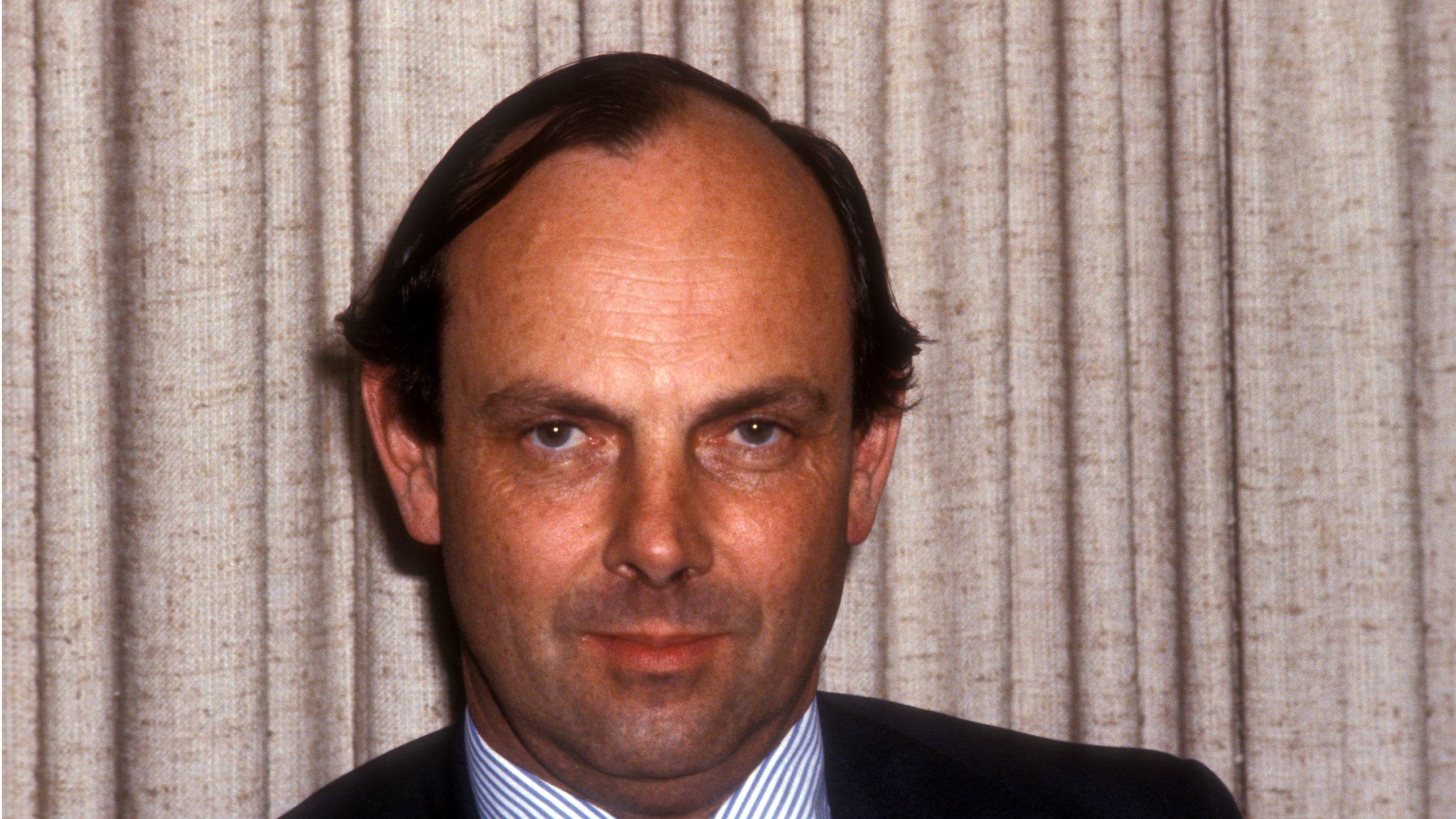Obituary: Nicholas Edwards, Lord Crickhowell
- Published

Nicholas Edwards was Welsh Secretary for eight years during Margaret Thatcher's government.
During that time he prioritised economic development and set up the corporation which later transformed Cardiff's waterfront.
After standing down as an MP, he became a member of the House of Lords, taking the title Lord Crickhowell.
He was bitterly disappointed that architect Zaha Hadid's design for a Cardiff Bay opera house was not built.
Nicholas Edwards was born in 1934. After a private education and national service in the Royal Welch Fusiliers, he went to Trinity College, Cambridge where he read history.
He married Ankaret Healing in 1963 and the couple later had three children.
Nicholas Edwards worked as an insurance broker in the City before being elected as the Conservative MP for Pembrokeshire in 1970.
When Margaret Thatcher became leader of the Conservative Party, he was given the Welsh Affairs brief in the shadow cabinet.
After the Conservatives' victory at the 1979 general election, Nicholas Edwards became Secretary of State for Wales.
In his 1999 book, Westminster, Wales and Water he wrote that the challenges were "huge", but that it was also "an incredibly exciting and enthralling moment at which to be at the centre of events and to have the opportunity to change decisively for the better conditions in that part of Britain that I love most".
One of the first issues which faced him as Welsh Secretary was Welsh-language broadcasting. The Conservative government had changed its manifesto position on the establishment of a separate Welsh language service on the fourth channel.
The Plaid Cymru leader Gwynfor Evans threatened to fast to death unless the government again changed its position, but Nicholas Edwards later wrote: "The decisive influence was not the fast but a visit to my office by the Archbishop of Wales, Lord Cledwyn of Penrhos and Sir Goronwy Daniel.
"After that visit I told Willie Whitelaw [the Home Secretary] that, in my judgement, if we could not carry moderate opinion with us, we should change our minds and again reverse our policy.
"My advice was immediately accepted and we were on the road that was to lead to the birth of Sianel Pedwar Cymru (S4C)."
The new channel began broadcasting in 1982.
While in the Welsh Office, Nicholas Edwards focused his energies on developing the Welsh economy. Factories were built and there was considerable inward investment.
Schemes to reclaim and regenerate derelict land were maintained, but perhaps the most eye-catching plan he spearheaded was the controversial redevelopment of Cardiff Bay.
The proposal involved building a barrage between Penarth Head and Cardiff docks, creating a freshwater lake. By making the waterfront more appealing, it was hoped that the area would become an attractive area for new investment.
The barrage was fiercely opposed by Rhodri Morgan, then the MP for Cardiff West, who raised concerns about the impact of the barrage on the environment and groundwater levels, and the scheme was delayed as a result.
Nicholas Edwards stood down as an MP in 1987 and was elevated to the House of Lords as Baron Crickhowell of Pont Esgob in the Black Mountains and County of Powys.
He was therefore a member of the second chamber by the time the Cardiff Bay barrage project came to fruition.
The centrepiece of Lord Crickhowell's vision for Cardiff Bay was an opera house for Wales, and a competition to select an architect was launched in the mid nineties.
The competition was won by Zaha Hadid and, although her appointment was opposed in some quarters, an application was made to the Millennium Commission for funding.
In 1995, the application based on Hadid's design was rejected by the Millennium Commission on cost grounds - a decision which left Lord Crickhowell "angry".
He felt that a "lack of vision, leadership and courage" had been shown.
As well as chairing the Cardiff Bay Opera Trust, Lord Crickhowell took on several other roles in public life while a member of the House of Lords.
He was a member of several Lords' committees, and became the first chairman of the National Rivers Authority when it was set up in 1989.
The authority covered some of the functions of the old water boards after they were privatised.
Lord Crickhowell continued as chair of the NRA until it was subsumed in to the Environment Agency in 1996.
He was also President of University of Wales, Cardiff for a decade and a director of the Welsh National Opera for four years.
He remained interested in developments in Cardiff Bay and recently spoke out against a plan for a 24 storey building near the Norwegian church.
- Published19 March 2018